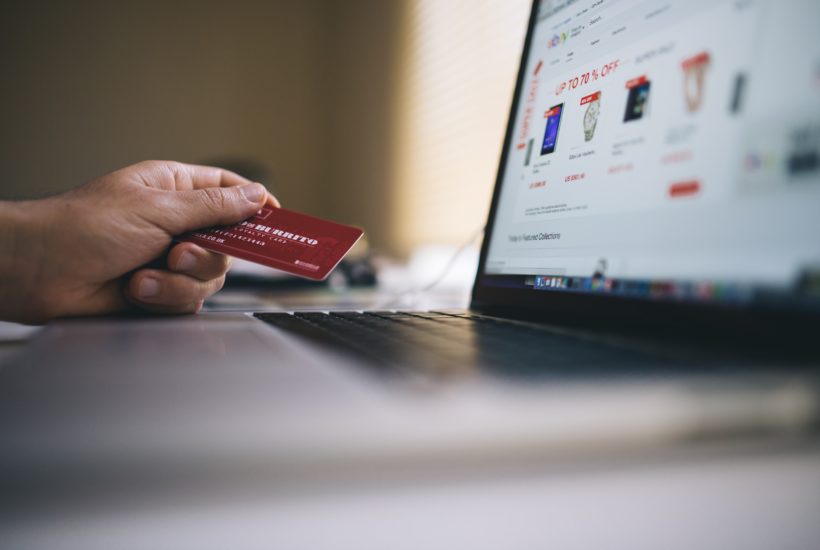Featured
When will digital payments put an end to cash in Colombia
A recent report on the behavior of e-commerce in Colombia shows an increase in online sales of 65.7%, reaching 479 transactions per minute. The increase was accelerated by the pandemic. The use of QR codes has advanced significantly in recent years from different areas, and the case of commerce is no exception, as indicated by the Mercado Pago online transaction platform.

Digital payments are an increasingly popular mode of payment in the global marketplace, and during the days of mandatory quarantine due to the COVID-19 pandemic, they have seen accelerated growth, driven primarily by online commerce.
In the country, according to the report on the behavior of e-commerce in Colombia during 2020, delivered by the Colombian Chamber of Electronic Commerce, between April and July, there was a growth in online sales of 65.7%, reaching 479 transactions per minute. The pandemic deepens drop in cash use.
The report showed that more and more Colombians are getting used to making their purchases and activities through digital payments, a field that makes use of technological advances to expand the possibilities of businesses and consumers.
Read more details about the trends in digital payments and find the latest financial headlines with the Born2Invest mobile app.
QR Code, on the rise
The use of QR codes has advanced significantly in recent years from different areas, and the case of ecommerce is no exception, as indicated by the Mercado Pago online transaction platform.
“Users see digital payments as an easy, safe, comfortable and agile option to carry out their transactions. In this change of paradigm, the Colombian consumer has been taking giant steps and we are surprised to see how each month it surpasses the previous one in terms of electronic transactions, with QR codes being one of the most used options,” said Juan Carlos Riveroll, manager of Wallet MercadoPago Colombia.
One of the things that stands out from the payment of QR codes is the simplicity with which it can be done, while dispensing with the use of dataphones and reducing the steps to make the transaction.
To use it, in the case of Mercado Pago, the user must download the application, scan the code and choose which payment method, either debit or credit card.
“What businesses must do is register on the platform and it will generate a code of their products, which is printed to locate it on the premises. This is a good substitute for a dataphone; everything is done through the cell phone,” detailed Riveroll.
Digital wallets are also increasingly popular
Another one of the modalities that is growing with great impulse is the use of applications, either from the banking entities in which the account is held or from a fintech company, to make transactions, deposits, payments of services, among others. By September of this year, a total of 14,533,000 users of virtual wallets and Specialized Companies in Deposits and Electronic Payments (Sedpe) were registered in the country.
In addition, by the beginning of this year, it is expected that ‘Tap the phone’ will arrive in the country, a technology that allows through a cell phone with Android operating system and that has NFC, payments can be made without the contact of the credit or debit card of Visa and without having an additional device.
“It is to bring the customer’s virtual card to the establishment’s cell phone and then the application does everything, the transaction is authorized and then a ‘bauche’ arrives at the store, with the confirmation of the sale and another to the customer with his purchase. This allows us to reduce physical contact and comply with biosecurity standards,” said Arturo Ramos, business manager for the Andean Region of ‘fintech’ GeoPagos.
It is a fast, reliable, and secure way for people to identify themselves or authorize a transaction while moving smoothly through the day.
Amazon One
Amazon One uses each individual’s “unique” palm, an alternative to other biometric identifiers such as fingerprint recognition.
And without going too far, Amazon, the e-commerce giant, introduced a few weeks ago Amazon One, a new biometric payment system that uses palm recognition to make payments.
“It’s a fast, reliable and secure way for people to identify themselves or authorize a transaction while moving smoothly through the day,” said Dilip Kumar, vice president of Amazon, during the presentation of the device.
All of this shows that stopping the use of cash could be a reality, at least in the long run.
__
(Featured image by Negative Space via Pexels)
DISCLAIMER: This article was written by a third party contributor and does not reflect the opinion of Born2Invest, its management, staff or its associates. Please review our disclaimer for more information.
This article may include forward-looking statements. These forward-looking statements generally are identified by the words “believe,” “project,” “estimate,” “become,” “plan,” “will,” and similar expressions. These forward-looking statements involve known and unknown risks as well as uncertainties, including those discussed in the following cautionary statements and elsewhere in this article and on this site. Although the Company may believe that its expectations are based on reasonable assumptions, the actual results that the Company may achieve may differ materially from any forward-looking statements, which reflect the opinions of the management of the Company only as of the date hereof. Additionally, please make sure to read these important disclosures.
First published in EL TIEMPO, a third-party contributor translated and adapted the article from the original. In case of discrepancy, the original will prevail.
Although we made reasonable efforts to provide accurate translations, some parts may be incorrect. Born2Invest assumes no responsibility for errors, omissions or ambiguities in the translations provided on this website. Any person or entity relying on translated content does so at their own risk. Born2Invest is not responsible for losses caused by such reliance on the accuracy or reliability of translated information. If you wish to report an error or inaccuracy in the translation, we encourage you to contact us.

-

 Crypto2 weeks ago
Crypto2 weeks agoBitcoin Wavers Below $70K as Crypto Market Struggles for Momentum
-

 Biotech4 days ago
Biotech4 days agoInterministerial Commission on Drug Prices Approves New Drugs and Expanded Treatment Funding
-

 Africa2 weeks ago
Africa2 weeks agoMorocco’s Tax Reforms Show Tangible Results
-

 Biotech7 days ago
Biotech7 days agoUniversal Nanoparticle Platform Enables Multi-Isotope Cancer Diagnosis and Therapy

























